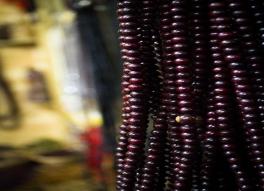
Raoul Restucci
Raoul Restucci, the managing director of Petroleum Development Oman (PDO) announced at his company’s annual media briefing last week that PDO has discovered several new sources for oil and gas in Oman, in addition to those already reported in 2011.
Two areas within the northeast sector of PDO’s concession area, in Lekhwair, were discovered; Lekwhair-724 and Mazkhour-5. Restuccci said that early test results predict that these wells should be able to supply more than 2,600 barrels of oil per day.
"In the south of Oman, PDO exploration well Sakhiya-21 discovered oil in an intra-salt Ara stringer carbonate reservoir near the Harweel production station. The well sustained an oil flow of over 1,800 bpd during the production test. The eventual recoverable volumes from the field, including the use of miscible gas injection as a secondary recovery scheme, are expected to be over 35 million barrels of oil," he said.
"Overall, these discoveries of both oil and gas come from a variety of reservoirs and depths, demonstrating the significant potential that continues to be available in the PDO concession area. As a result, PDO will continue its extensive efforts to find both new oil and new gas fields," Restucci stated.
In other good news for PDO, the company also had its best year in safety statistics. Total Recordable Case Frequency (TRCF) is at an all-time high with more than 450 million kilometers without even one work related road accident fatality. In addition, PDO signed a $35 million five year contract with Al Haditha Oilfield Services Company, which agrees to provide necessary flowline replacement services.
Restucci said that the value of the contract which was signed last week also increases with the scope of the work which Al Haditha can cover. The contract with Al Haditha, Restucci added, is part of their “In Country Value” strategy, which strives to support SLCC companies as well as grow and develop services and products created by Omani-based companies.

